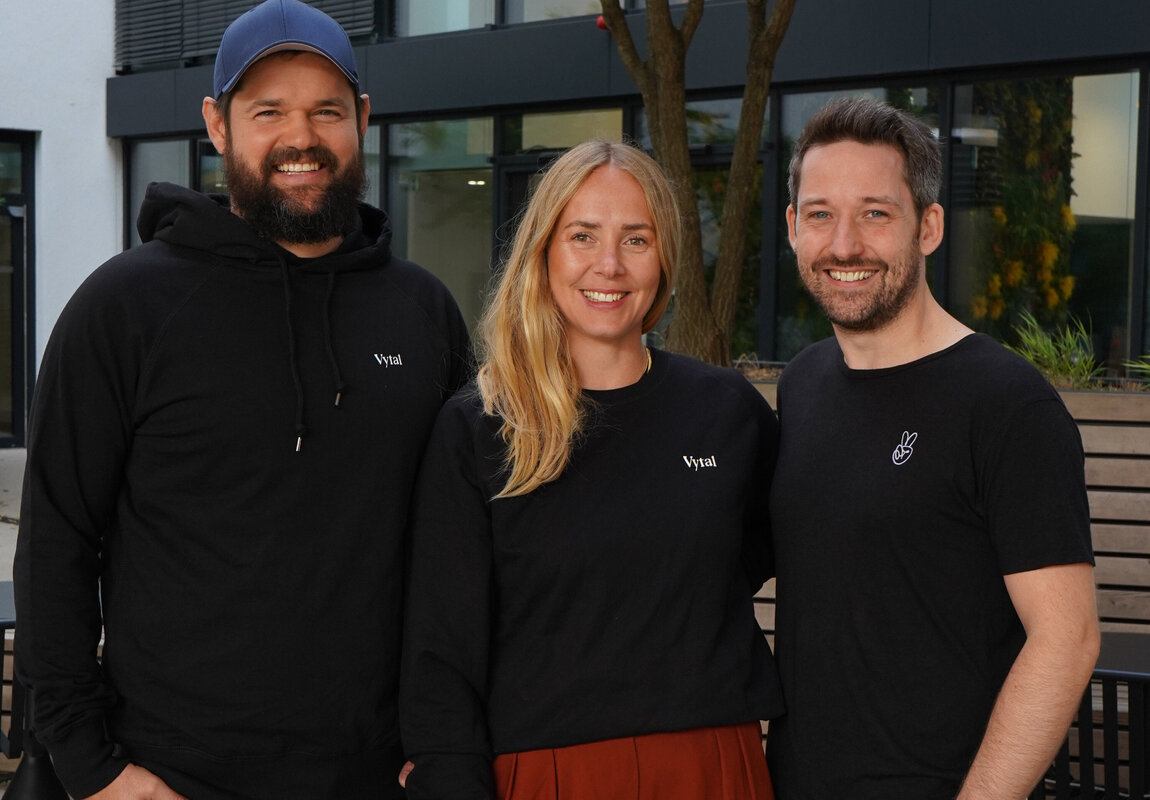WHU start-up offers a smart and sustainable alternative to single-use food packaging
Whether your take-out order comes wrapped in plastic, aluminum foil, or cardboard, how often do you think about where that packaging ends up once you’ve finished eating? Most people never think twice about it, which results in tons of unnecessary waste every year—and that’s just in Germany alone.
But Dr. Tim Breker, an alum of WHU – Otto Beisheim School of Management, knows that a substantial portion of this waste can be avoided. He co-founded Vytal in 2019, and since then, the company has developed a technology that allows its users to order food and drink housed in reusable containers, which can then be returned to one of the many partners in the company’s network. Although the Vytal model is not a redemption system, the return rate on its reusable packaging—which can be reused up to 200 times—is over 99%.
“We chiefly measure our success by how much disposable packaging has been spared through our system,” said Dr. Breker, who also acts as one of the company’s managing directors. “Through our open system, now used at restaurants, at canteens, and by caterers, we’ve saved tens of millions of single-use packaging items.” The technology behind the system allows the company to precisely track the positive effect it is having on the environment—and allows its customers to use the Vytal app to see how much they’ve contributed.
Major advantages for large-scale events
Starting this last summer, Vytal’s system has been in use at several large-scale events—including the OMR Festival in Hamburg, the fan zones set up at the European Football Championship, and the “Deutsche Haus” at this year’s Olympic Games in Paris. Such events typically require millions of single-use packaging items, all of which were avoided with Vytal’s system. And event organizers are benefitting on all fronts: “The system we offer is not just sustainable. We’re also helping those in the food industry save on packaging costs, work more efficiently, retain customers, and ensure long-term success,” explained Dr. Breker. The young start-up, once featured on Germany’s answer to Shark Tank, still sees unexplored potential in large-scale events, as well as in hospitals.
A rethink in gastronomy all over the world
Of course, the level of waste caused by single-use packaging is a global problem. To date, Vytal’s system has been adopted in 17 different countries. And the company is working hard to expand its reach and scale its business model in those territories.
The start-up has also been given somewhat of a boost at a political level. In 2023, Germany introduced its new Reusable Packaging Law (“Mehrwegangebotspflicht”), and the European Union, in accordance with its Packaging and Packaging Waste Regulation (PPWR), announced its own target regarding the matter: By 2030, the Union hopes to offer 10% of all its products in reusable packaging.
Vytal, a tech company
Vytal’s three founders—WHU alumnus Dr. Tim Breker (BSc, 2009), Dr. Fabian Barthel, and Sven Witthöft—first met while working in management consulting. Day after day, the three routinely consumed food that came in disposable packaging. When they noticed garbage cans filled to the brim with the stuff, they asked themselves if there wasn’t a better solution out there. They answered their own question in 2019 when they founded Vytal in Cologne. The company is now active in several major cities across and outside of Germany. Last year, Dr. Josephine Kreische (doctoral degree 2020) joined Vytal’s management team, taking over for Sven Witthöft.
WHU Entrepreneurship Center
The WHU Entrepreneurship Center has made it its mission to build and maintain a network of alumni, students, employees, and other partners in order to contribute to the overall success of today’s entrepreneurial ecosystem.
It also serves as an interface connecting founders, investors, student clubs, businesses, and more. It provides access to information, resources, and expertise valuable to today’s entrepreneurs and is an important part of WHU’s start-up community, which, to date, has produced 15 business unicorns.
Read more about WHU’s entrepreneurial ecosystem in our press kit.

